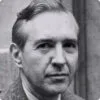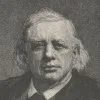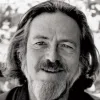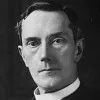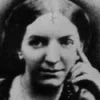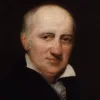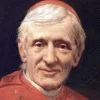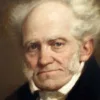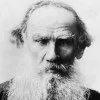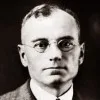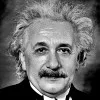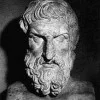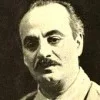PHILOSOPHY, n. A route of many roads leading from nowhere to nothing.
Ambrose Bierce (1842-1914?) American writer and journalist
“Philosophy,” The Devil’s Dictionary (1911)
(Source)
Originally published in the "Cynic's Word Book" column in the New York American (1905-01-11), and the "Cynic's Dictionary" column in the San Francisco Examiner (1905-03-18).
Quotations about:
philosophy
Note not all quotations have been tagged, so Search may find additional quotes on this topic.
Philosophy iz a fust rate thing to hav, but yu kant alleviate the gout with it, unless the gout happens to be on sum other phellow.
[Philosophy is a first rate thing to have, but you can’t alleviate the gout with it, unless the gout happens to be on some other fellow.]
Josh Billings (1818-1885) American humorist, aphorist [pseud. of Henry Wheeler Shaw]
Josh Billings’ Trump Kards, ch. 2 “Grand Pa” (1874)
(Source)
Philosophers no longer write for the intelligent, only for their fellow professionals. The few thousand academic philosophers in the world do not stint themselves: they maintain more than seventy learned journals. But in the handful that cover more than one subdivision of philosophy, any given philosopher can hardly follow more than one or two articles in each issue. This hermetic condition is attributed to “technical problems” in the subject. Since William James, Russell, and Whitehead, philosophy, like history, has been confiscated by scholarship and locked away from the contamination of general use.
Jacques Barzun (1907-2012) French-American historian, educator, polymath
Essay (1989), “Culture High and Dry,” The Culture We Deserve
(Source)
An earlier version of this essay was published as "Scholarship versus Culture," Atlantic Monthly (1984-11).
INNATE, adj. Natural; inherent — as, innate ideas, that is to say, ideas that we are born with, having had them previously imparted to us. The doctrine of innate ideas is one of the most admirable faiths of philosophy, being itself an innate idea and therefore inaccessible to disproof, though Locke foolishly supposed himself to have given it “a black eye.” Among innate ideas may be mentioned the belief in one’s ability to conduct a newspaper, in the greatness of one’s country, in the superiority of one’s civilization, in the importance of one’s personal affairs, and in the interesting nature of one’s diseases.
Ambrose Bierce (1842-1914?) American writer and journalist
“Innate,” The Cynic’s Word Book (1906)
(Source)
Referencing English philosopher John Locke (1632-1704) who argued against the notion of innate ideas in An Esssay Concerning Human Understanding, Book 1 (1690).
Included in The Devil's Dictionary (1911). Originally published in the "Devil's Dictionary" column in the San Francisco Wasp (1885-10-17).
Thanks to the flattering paint brush of the imagination, the cold skeleton of reason takes on rosy, living flesh. Through the imagination, the sciences flourish and grow in beauty; it makes woods speak, echoes sigh, marble breathe, and rocks cry; all inanimate bodies take on life. It is imagination once again that adds the piquant allure of sensuality to the tenderness of an amorous heart. Imagination causes the germination of sensuality in the dusty studies of philosophers and pedants. Finally, imagination forms learned men as well as orators and poets.
[Par elle, par son pinceau flatteur, le froid squelette de la raison prend des chairs vives et vermeilles; par elle les sciences fleurissent, les arts s’embellissent, les bois parlent, les échos soupirent, les rochers pleurent, le marbre respire, tout prend vie parmi les corps inanimés. C’est elle encore qui ajoute à la tendresse d’un cœur amoureux le piquant attrait de la volupté; elle la fait germer dans le cabinet du philosophe, et du pédant poudreux; elle forme enfin les savants comme les orateurs et les poëtes.]
Julien Offray de La Mettrie (1709-1751) French physician and philosopher
L’homme machine [Man a Machine] (1747) [tr. Watson/Rybalka (1994)]
(Source)
(Source (French)). Alternate translations:By [imagination's] flattering pencil the cold skeleton of abstract reason assumes living and vermillion flesh; by it the sciences flourish, arts are embellished, woods speak, echoes sigh, rocks weep, marbles breaths, and all the inanimate bodies are suddenly inspired with life. 'Tis it that adds to the tenderness of an amourous heart the poignant taste of pleasures; it makes love bud in the cabinet of the philosopher and dusty pedant: in fine it forms the scientific men as well as orators, and poets.
[ed. Owen (1746)]By the imagination, by its flattering brush, the cold skeleton of reason takes on living and ruddy flesh, by the imagination the sciences flourish, the arts are adorned, the wood speaks, the echoes sigh, the rocks weep, marble breathes, and all inanimate objects gain life. It is imagination again which adds the piquant charm of voluptuousness to the tenderness of an amorous heart; which makes tenderness bud in the study of the philosopher and of the dusty pedant, which, in a word, creates scholars as well as orators and poets.
[tr. Bussey (1912)]Thanks to the imagination, to its flattering touch, the cold skeleton of reason acquires living rosy flesh; thanks to it the sciences flourish, the arts are embellished, woods speak, echoes sign, rocks weep, marble breaths and all inanimate objects come to life. It is, again, the imagination that adds to the tenderness of a loving heart the spicy attraction of sensuality. It makes it flower in the study of the philosopher or the dry-as-dust pedant, and it moulds scientists as well as orators and poets.
[tr. Thomson (1996); Machine Man]
The one thing that unifies men in a given age is not their individual philosophies but the dominant problem that these philosophies are designed to solve.
Jacques Barzun (1907-2012) French-American historian, educator, polymath
Romanticism and the Modern Ego, ch. 1 (1943)
(Source)
How shallow, puny, and imperfect are efforts to sound the depths in the nature of things. In philosophical discussion, the merest hint of dogmatic certainty as to finality of statement is an exhibition of folly.
Alfred North Whitehead (1861-1947) English mathematician and philosopher
Process and Reality: An Essay in Cosmology, Preface (1929)
(Source)
The book is a collection of his Gifford Lectures, University of Edinburgh (1927-1928).
But so long as men are not trained to withhold judgment in the absence of evidence, they will be led astray by cocksure prophets, and it is likely that their leaders will be either ignorant fanatics or dishonest charlatans. To endure uncertainty is difficult, but so are most of the other virtues. For the learning of every virtue there is an appropriate discipline, and for the learning of suspended judgment the best discipline is philosophy.
Bertrand Russell (1872-1970) English mathematician and philosopher
“Philosophy for Laymen,” Universities Quarterly (1946-11)
(Source)
Reprinted in Unpopular Essays, ch. 2 (1951).
WYATT: Do you think that philosophy contribute to happiness?
RUSSELL: Yes, if you happen to be interested in philosophy and good at it, but not otherwise – but so does bricklaying. Anything you’re good at contributes to happiness.
Bertrand Russell (1872-1970) English mathematician and philosopher
Interview by Woodrow Wyatt, BBC TV (1959)
Collected in Bertrand Russell's BBC Interviews (1959) [UK] and Bertrand Russell Speaks His Mind (1960) [US].
Where other powers of entertainment are wanting, the true philosopher will derive benefit from such as are given.
The philosopher Didactylos has summed up an alternative hypothesis as “Things just happen. What the hell.”
Philosophy complains that Custom has hoodwinked us, from the first; that we do everything by Custom, even Believe by it; that our very Axioms, let us boast of Free-thinking as we may, are oftenest simply such Beliefs as we have never heard questioned. Nay, what is Philosophy throughout but a continual battle against Custom; an ever-renewed effort to transcend the sphere of blind Custom, and so become Transcendental?
Thomas Carlyle (1795-1881) Scottish essayist and historian
Sartor Resartus, Book 3, ch. 8 (1831)
(Source)
On the one hand, philosophy is to keep us thinking about things that we may come to know, and on the other hand to keep us modestly aware of how much what seems like knowledge isn’t knowledge.
Bertrand Russell (1872-1970) English mathematician and philosopher
Interview by Woodrow Wyatt, BBC TV (1959)
(Source)
Collected in Bertrand Russell's BBC Interviews (1959) [UK] and Bertrand Russell Speaks His Mind (1960) [US]. Reprinted (abridged) in The Humanist (1982-11/12), and in Russell Society News, #37 (1983-02).
Reading those turgid philosophers here in these remote stone buildings may not get you a job, but if those books have forced you to ask yourself questions about what makes life truthful, purposeful, meaningful, and redeeming, you have the Swiss Army Knife of mental tools, and it’s going to come in handy all the time.
Bill Watterson (b. 1958) American cartoonist
Commencement Address, Kenyon College (1990-05-20)
(Source)
A serious and good philosophical work could be written consisting entirely of jokes.
Ludwig Wittgenstein (1889-1951) Austrian-English philosopher
Quoted in Norman Malcolm, Ludwig Wittgenstein: A Memoir (1958)
(Source)
This is usually presented as a direct quotation, but is perhaps a paraphrase. The full passage from Malcolm:It is worth noting that Wittgenstein once said that a serious and good philosophical work could be written that would consist entirely of jokes (without being facetious).
Altruism is a hard master; but so is opportunism.
Mignon McLaughlin (1913-1983) American journalist and author
The Neurotic’s Notebook, ch. 5 (1963)
(Source)
Well, that’s Philosophy I’ve read,
And Law and Medicine, and I fear
Theology, too, from A to Zed;
Hard studies all, that have cost me dear.
And so I sit, poor silly man
No wiser now than when I began.[Habe nun, ach! Philosophie,
Juristerei und Medizin,
Und leider auch Theologie
Durchaus studiert, mit heißem Bemühn.
Da steh ich nun, ich armer Tor!
Und bin so klug als wie zuvor.]Johann Wolfgang von Goethe (1749-1832) German poet, statesman, scientist
Faust: a Tragedy [eine Tragödie], Part 1, sc. 4 “Night,” ll. 354ff (1808-1829) [tr. Luke (1987)]
(Source)
Some translations (and this site) include the Declaration, Prelude on the Stage, and Prologue in Heaven as individual scenes; others do not, leading to their Part 1 scenes being numbered three lower.
(Source (German)). Alternate translations:I've studied now Philosophy
And Jurisprudence, Medicine,
And even, alas! Theology
All through and through with ardour keen!
Here now I stand, poor fool, and see
I'm just as wise as formerly.
[tr. Priest (1808)]Now I have toil'd thro' all; philosophy,
Law, physic, and theology: alas!
All, all I have explor'd; and here I am
A weak blind fool at last: in wisdom risen
No higher than before.
[tr. Coleridge (1821)]I have now, alas, by zealous exertion, thoroughly mastered philosophy, the jurist's craft, and medicine -- and to my sorrow, theology too. Here I stand, poor fool that I am, just as wise as before.
[tr. Hayward (1831)]I have, alas! Philosophy,
Medicine, Jurisprudence too,
And to my cost Theology,
With ardent labour, studied through.
And here I stand, with all my lore,
Poor fool, no wiser than before.
[tr. Swanwick (1850)]Have now, alas! quite studied through
Philosophy and Medicine,
And Law, and ah! Theology, too,
With hot desire the truth to win!
And here, at last, I stand, poor fool!
As wise as when I entered school
[tr. Brooks (1868)]I've studied now Philosophy
And Jurisprudence, Medicine, --
And even, alas! Theology, --
From end to end, with labor keen;
And here, poor fool! with all my lore
I stand, no wiser than before:
[tr. Taylor (1870)]There now, I’ve toiled my way quite through
Law, Medicine, and Philosophy,
And, to my sorrow, also thee,
Theology, with much ado;
And here I stand, poor human fool,
As wise as when I went to school.
[tr. Blackie (1880)]I have studied, alas! Philosophy,
And Jurisprudence, and Medicine, too,
And saddest of all, Theology,
With arden labor, through and through!
And here I stick, as wise, poor fool,
As when my steps first turned to school.
[tr. Latham (1908)]I have, alas, studied philosophy,
Jurisprudence and medicine, too,
And, worst of all, theology
With keen endeavor, through and through --
And here I am, for all my lore,
The wretched fool I was before.
[tr. Kaufmann (1961)]Alas, I have studied philosophy,
the law as well as medicine,
and to my sorrow, theology;
studied them well with ardent zeal,
yet here I am, a wretched fool
no wiser than I was before.
[tr. Salm (1962)]I have pursued, alas, philosophy,
Jurisprudence, and medicine, And, help me God, theology,
With fervent zeal through thick and thin.
And here, poor fool, I stand once more,
No wiser than I was before.
[tr. Arndt (1976)]I've studied, alas, philosophy,
Law and medicine, recto and verso,
And how I regret it, theology also,
Oh God, how hard I've slaved away,
With what result? Poor foolish old man,
I'm not whit wiser than when I began!
[tr. Greenberg (1992)]Medicine, and Law, and Philosophy --
You've worked your way through every school,
Even, God help you, Theology,
And sweated at it like a fool.
Why labour at it any more?
You're no wiser now than you were before.
[tr. Williams (1999)]Ah! Now I’ve done Philosophy,
I’ve finished Law and Medicine,
And sadly even Theology:
Taken fierce pains, from end to end.
Now here I am, a fool for sure!
No wiser than I was before.
[tr. Kline (2003)]
The whole philosophy of life can be summed up in two little words: be kind.
But immediately upon this I observed that, whilst I thus wished to think that all was false, it was absolutely necessary that I, who thus thought, should be somewhat; and as I observed that this truth, I think, therefore I am (COGITO ERGO SUM), was so certain and of such evidence that no ground of doubt, however extravagant, could be alleged by the sceptics capable of shaking it, I concluded that I might, without scruple, accept it as the first principle of the philosophy of which I was in search.
[Mais aussitôt après je pris garde que, pendant que je voulois ainsi penser que tout étoit faux, il falloit nécessairement que moi qui le pensois fusse quelque chose; et remarquant que cette vérité, je pense, donc je suis, étoit si ferme et si assurée, que toutes les plus extravagantes suppositions des sceptiques n’étoient pas capables de l’ébranler, je jugeai que je pouvois la recevoir sans scrupule pour le premier principe de la philosophie que je cherchois.]
René Descartes (1596-1650) French philosopher, mathematician
Discourse on Method [Discours de la méthode], Part 4 (1637) [tr. Veitch (1850)]
(Source)
(Source (French)). Alternate translations:But presently after I observ’d, that whilst I would think that all was false, it must necessarily follow, that I who thought it, must be something. And perceiving that this Truth, I think, therefore, I am, was so firm and certain, that all the most extravagant suppositions of the Scepticks was not able to shake it, I judg’d that I might receive it without scruple for the first principle of the Philosophy I sought.
[Newcombe ed. (1649)]But immediately afterwards I noticed that whilst I thus wished to think all things false, it was absolutely essential that the "I" who thought this should be somewhat, and remarking that this truth "I think, therefore I am" was so certain and so assured that all the most extravagant suppositions brought forward by the sceptics were incapable of shaking it, I came to the conclusion that could receive it without scruple as the first principle of the Philosophy for which I was seeking.
[tr. Haldane & Ross (1911)]But immediately upon this I noticed that while I was trying to think everything false, it must needs be that I, who was thinking this, was something. And observing that this truty "I am thinking, therefore I exist" was so solid sceptics could not overthrow it, I judged that I need not scriple to accept it as the first principle of philosophy that I was seeking.
[tr. Ascombe & Geach (1971)]But immediately I noticed that while I was endeavoring in this way to think that everything was false, it was necessary that I, who was thinking this, was something. And observing that this truth, "I am thinking, therefore I exist" was so firm and sure that all the most extravagant suppositions of the sceptics were incapable of shaking it, I decided that I could accept it without scruple as the first principle of the philosophy I was seeking.
[tr. Cottingham, Stoothoff (1985)]
Truths are first clouds, then rain, then harvests and food. The philosophy of one century is the common sense of the next. Men are called fools, in one age, for not knowing what they were called fools for averring in the age before.
But in my college days I discovered that nothing can be imagined which is too strange or incredible to have been said by some philosopher.
[Mais ayant appris dès le collège qu’on ne sauroit rien imaginer de si étrange et si peu croyable, qu’il n’ait été dit par quelqu’un des philosophes.]
René Descartes (1596-1650) French philosopher, mathematician
Discourse on Method [Discours de la méthode], Part 2 (1637) [tr. Cottingham, Stoothoff (1985)]
(Source)
See Cicero. (Source (French)). Alternate translations:For having learnt from the very School, That one can imagin nothing so strange or incredible, which had not been said by some one of the Philosophers.
[tr. Newcombe ed. (1649)]But I had become aware, even so early as during my college life, that no opinion, however absurd and incredible, can be imagined, which has not been maintained by some on of the philosophers.
[tr. Veitch (1901)]But I had been taught, even in my College days, that there is nothing imaginable so strange or so little credible that it has not been maintained by one philosopher or another.
[tr. Haldane, Ross (1911)]One cannot conceive anything so strange and so implausible that it has not already been said by one philosopher or another.
A Dialogue between two Infants in the womb concerning the state of this world, might handsomely illustrate our ignorance of the next, whereof methinks we yet discourse in Platoes denne, and are but Embryon Philosophers.
Thomas Browne (1605-1682) English physician and author
Hydriotaphia, or Urne-Buriall, ch. 4 (1658)
(Source)
For whoever reflects on the nature of things, the various turns of life, and the weakness of human nature, grieves, indeed, at that reflection; but while so grieving he is, above all other times, behaving as a wise man: for he gains these two things by it; one, that while he is considering the state of human nature he is performing the especial duties of philosophy, and is provided with a triple medicine against adversity: in the first place, because he has long reflected that such things might befall him, and this reflection by itself contributes much towards lessening and weakening all misfortunes; and, secondly, because he is persuaded that we should bear all the accidents which can happen to a man, with the feelings and spirit of a man; and lastly, because he considers that what is blameable is the only evil; but it is not your fault that something has happened to you which it was impossible for man to avoid.
[Neque enim qui rerum naturam, qui vitae varietatem, qui imbecillitatem generis humani cogitat, maeret, cum haec cogitat, sed tum vel maxime sapientiae fungitur munere. Utrumque enim consequitur, ut et considerandis rebus humanis proprio philosophiae fruatur officio et adversis casibus triplici consolatione sanetur: primum quod posse accidere diu cogitavit, quae cogitatio una maxime molestias omnes extenuat et diluit; deinde quod humana humane ferenda intelligit; postremo quod videt malum nullum esse nisi culpam, culpam autem nullam esse, cum id, quod ab homine non potuerit praestari, evenerit.]
Marcus Tullius Cicero (106-43 BC) Roman orator, statesman, philosopher
Tusculan Disputations [Tusculanae Disputationes], Book 3, ch. 16 (3.16) / sec. 34 (45 BC) [tr. Yonge (1853)]
(Source)
(Source (Latin)). Alternate translations:For he that considers the order of Nature, and the Vicissitudes of Life, and the Frailty of Mankind is not melancholly when he considers these things, but is then most principally imploy'd in the exercise of Wisdom, for he reaps a double advantage; both that in the consideration of man's circumstances, he enjoyeth the proper Office of Philosophy; and in case of Adversity, he is supported by a threefold Consolation. First, that he hath long consider'd that such accidents might come; which consideration alone doth most weaken and allay all Afflictions. Then he cometh to learn, that all Tryals common to men, should be born, as such, patiently. Lastly, that he perceiveth there is no Evil, but where is blame; but there is no blame, when that falls out, the Prevention of which, was not in man to warrant.
[tr. Wase (1643)]For whoever reflects on the nature of things, the various turns of life, the weakness of human nature, grieves indeed at that reflection; but that grief becomes him as a wise man, for he gains these two points by it; when he is considering the state of human nature he is enjoying all the advantage of philosophy, and is provided with a triple medicine against adversity. The first is, that he has long reflected that such things might befall him, which reflection alone contributes much towards lessening all misfortunes: the next is, that he is persuaded, that we should submit to the condition of human nature: the last is, that he discovers what is blameable to be the only evil. But it is not your fault that something lights on you, which it was impossible for man to avoid.
[tr. Main (1824)]For neither does he who contemplates the nature of things, the mutations of life, the fragility of man, grieve when he thinks of these matters, but then most especially exercises the office of wisdom. For, by the study of human affairs, he at once pursues the proper aim of philosophy, and provides himself with a triple consolation for adverse events: -- first, that he has long deemed them possible to arrive; which one consideration has the greatest efficacy for the extenuation and mitigation of all misfortune: and, next, he perceives that human accidents are to be borne like a man: and, finally, because he sees there is no evil but fault, and that there is no fault where that has happened which man could not have prevented.
[tr. Otis (1839)]Indeed, he who thinks of the nature of things, of the varying fortune of life, of the weakness of the human race, does not sorrow when these things are on his mind, but he then most truly performs the office of wisdom; for from such thought there are two consequences, -- the one, that he discharges the peculiar function of philosophy; the other, that in adversity he has the curative aid of a threefold consolation: first, because, as he has long thought what may happen, this sole thought is of the greatest power in attenuating and diluting every trouble; next, because he understands that human fortunes are to be borne in a way befitting human nature; -- lastly, because he sees that there is no evil but guilt, while there is no guilt in the happening of what man could not have prevented.
[tr. Peabody (1886)]For the person who reflects on the nature of things, on the variety of life, and the precarity of human existence is not sad in considering these things but is carrying out the duty of wisdom in the fullest way. For they pursue both in enjoying the particular harvest of philosophy by considering what happens in human life and in suffering adverse outcomes by cleansing with a three-part solace. First, by previously accepting the possibility of misfortune—which is the most way of weakening and managing any annoyance and second, by learning that human events must be endured humanely; and third, by recognizing that there is nothing evil except for blame and there is no blame when the event is something against which no human can endure.
[tr. @sentantiq (2021)]
Act as the wisest have acted before you, and do not commence your exercises in philosophy in those regions where an error can deliver you over to the executioner.
Georg C. Lichtenberg (1742-1799) German physicist, writer
Aphorisms, Notebook C, #16 [142] (1772-73) [tr. Hollingdale (1960)]
(Source)
Alternate translation: "Act as the wisest before you have acted, and do not begin your philosophical exercises where an error can deliver you into the hands of the executioner." [tr. Tester (2012)]
I do not deny that pain is painful — otherwise, why would bravery be desired? But I do say that it is suppressed through patience, if we possess any amount at all. If we have none, then why do we raise philosophy on high and robe ourselves in its glory?
[Non ego dolorem dolorem esse nego — cur enim fortitudo desideraretur? — sed eum opprimi dico patientia, si modo est aliqua patientia: si nulla est, quid exornamus philosophiam aut quid eius nomine gloriosi sumus?]
Marcus Tullius Cicero (106-43 BC) Roman orator, statesman, philosopher
Tusculan Disputations [Tusculanae Disputationes], Book 2, ch. 14 (2.14) / sec. 33 (45 BC) [tr. @sentantiq (2020)]
(Source)
Original Latin. Alternate translations:I do not deny Pain to be Pain, for what need else were there of Fortitude? but I say it may be suppress'd by Patience, if there be any such Virtue as Patience; if there be none, why do we magnifie Philosophy? or why do we value our selves in being denominated from her?
[tr. Wase (1643)]I do not deny pain to be pain, for were that the case, in what would courage consist? but I say it should be assuaged by patience, if there be such a thing as patience: if there be no such thing, then why do we speak so in praise of philosophy? or why do we glory in its name?
[tr. Main (1824)]That pain is pain, I do not deny; for why should fortitude be desired? but I say it is kept under by patience: -- if, at least, there be any patience. If there be no such thing, why do we extol philosophy? or why do we glory in her name?
[tr. Otis (1839)]I do not deny pain to be pain; for were that the case, in what would courage consist? but I say it should be assuaged by patience, if there be such a thing as patience: if there be no such thing, why do we speak so in praise of philosophy? or why do we glory in its name?
[tr. Yonge (1853)]I do not deny that pain is pain; else where were the need of fortitude? But I do say that pain is subdued by patience, if patience be a real quality; and if it be not, why do we lavish praises on philosophy? Or what is there to boast of in its name?
[tr. Peabody (1886)]I don't deny that pain is pain -- otherwise why should there be felt a need for courage? But I say that it is overcome by endurance if only there is such a thing as endurance: if there isn't, why do we sing the praises of philosophy, or why are we boastful on its behalf?
[tr. Douglas (1990)]
For such is the work of philosophy. It cures souls, draws off vain anxieties, confers freedom from desires, drives away fears.
[Nam efficit hoc philosophia: medetur animis, inanes sollicitudines detrahit, cupiditatibus liberat, pellit timores.]
Marcus Tullius Cicero (106-43 BC) Roman orator, statesman, philosopher
Tusculan Disputations [Tusculanae Disputationes], Book 2, ch. 4 (2.4) / sec. 11 [Marcus] (45 BC) [tr. Peabody (1886)]
(Source)
Original Latin. Alternate translations:This is the proper work of Philosophy, it healeth the Distempers of the mind, removeth vain Disquiets, sets free from impetuous Desires, banisheth Fears
[tr. Wase (1643)]For it is the effect of philosophy, which is the medicine of our souls; it discharges all groundless apprehensions, frees us from desires, drives away fears.
[tr. Main (1824)]For such is the effect of philosophy. She heals the mind, banishes its vain solicitudes, delivers it from the chains of cupidity, expels its fearful apprehensions.
[tr. Otis (1839)]It is the effect of philosophy, which is the medicine of our souls; it banishes all groundless apprehensions, frees us from desires, and drives away fears.
[tr. Yonge (1853)]It is the effect of philosophy. It provides medicine for teh soul, takes away futile worries, frees us from desires, banishes fears.
[tr. Davie (2017)]
The problem is that the philosopher of today has lost his wonder, because wonder, in modern philosophy, is something you must not have; it is like enthusiasm in eighteenth-century England — it is very bad form.
Alan Watts (1915-1973) Anglo-American philosopher, writer
“The Relevance of Oriental Philosophy” (c. 1964)
(Source)
Collected in Eastern Wisdom, Modern Life, ch. 6 (2006).
You see, a philosopher is a sort of intellectual yokel who gawks at things that sensible people take for granted.
Alan Watts (1915-1973) Anglo-American philosopher, writer
“The Relevance of Oriental Philosophy” (c. 1964)
(Source)
Collected in Eastern Wisdom, Modern Life, ch. 6 (2006). Variant: "A philosopher is a sort of intellectual yokel who gawks at things, like existence, that ordinary people take for granted."
To ridicule philosophy, that is really to act the philosopher.
[Se moquer de la philosophie c’est vraiment philosophe.]
Blaise Pascal (1623-1662) French scientist and philosopher
Thoughts [Pensées], Article 7, #35 (1670)
Pascal's works are sorted and classified by translators in a variety of ways, so numbering is inconsistent. Alternate translations:
- "To have no time for philosophy is to be a true philosopher." [tr. Krailsheimer (2003); Series 22, #513]
- "To make light of philosophy is to be a true philosopher." [tr. Paul (1885), "Various Thoughts"; also Trotter (1958), Sec. 1, #4]
- "To ridicule philosophy is really to philosophize." [#430]
- "To ridicule philosophy is truly philosophical."
- "To mock philosophy is to philosophize truly"
- "To mock philosophy is to be a true philosopher."
After any disturbance (such as two world wars coinciding with a period of growing economic and monetary incomprehensibility) we find our old concepts inadequate and look for new ones. But it unfortunately happens that the troubled times which produce an appetite for new ideas are the least propitious for clear thinking.
Rebecca West (1892-1983) British author, journalist, literary critic, travel writer [pseud. for Cicily Isabel Fairfield]
In The Sunday Telegraph, London (1981)
(Source)
His philosophy was a mixture of three famous schools — the Cynics, the Stoics and the Epicureans — and summed up all three of them in his famous phrase, “You can’t trust any bugger further than you can throw him, and there’s nothing you can do about it, so let’s have a drink.”
To become a popular religion, it is only necessary for a superstition to enslave a philosophy.
William Ralph Inge (1860-1954) English prelate [Dean Inge]
“The Idea of Progress”, Romanes Lecture, Oxford (27 May 1920)
(Source)
To have a reason to get up in the morning, it is necessary to possess a guiding principle. A belief of some kind. A bumper sticker, if you will.
Judith Guest (b. 1936) American novelist and screenwriter.
Ordinary People, ch. 1, opening lines (1980)
(Source)
It happens sometimes that two opposite tendencies flourish together, deriving strength from a sense of the danger with which each is threatened by the popularity of the other. Where the antagonism is not absolute, each may gain by being compelled to recognise the strong points in the rival position. In a serious controversy the right is seldom or never all on one side; and in the normal course of events both theories undergo some modification through the influence of their opponents, until a compromise, not always logically defensible, brings to an end the acute stage of the controversy.
William Ralph Inge (1860-1954) English prelate [Dean Inge]
“Institutionalism and Mysticism” (1914), Outspoken Essays: First Series (1914)
(Source)
The name philosopher, which meant originally “lover of wisdom,” has come in some strange way to mean a man who thinks it is his business to explain everything in a certain number of large books. It will be found, I think, that in proportion to his colossal ignorance is the perfection and symmetry of the system which he sets up; because it is so much easier to put an empty room tidy than a full one.
William Kingdon Clifford (1845-1879) English mathematician and philosopher
Quoted in A. D’Abro, The Evolution of Scientific Thought from Newton to Einstein, Part 4, ch. 37 (1927)
(Source)
D'Abro says it comes from one of Clifford's essays, but the source does not appear online.
It was always my hope in writing novels and stories which asked the question, “what is reality?”, to someday get an answer. This was the hope of most of my readers, too. Years passed. I wrote over thirty novels and over a hundred stories and I still couldn’t figure out what was real. One day a girl college student in Canada asked me to define reality for her, for a paper she was writing for her philosophy class. She wanted a one-sentence answer. I thought about it and finally said, “Reality is that which, when you stop believing in it, doesn’t go away.” That’s all I could come up with. That was back in 1972. Since then I haven’t been able to define reality any more lucidly.
It is striking how much more seriously we are likely to be taken after we have been dead a few centuries.
Alain de Botton (b. 1969) Swiss-British author
The Consolations of Philosophy, ch. 4 “Consolation for Inadequacy” (2000)
(Source)
It is the trifles of life that are its bores, after all. Most men can meet ruin calmly, for instance, or laugh when they lie in a ditch with their own knee-joint and their hunter’s spine broken over the double post and rails: it is the mud that has choked up your horn just when you wanted to rally the pack; it’s the whip who carries you off to a division just when you’ve sat down to your turbot; it’s the ten seconds by which you miss the train; it’s the dust that gets in your eyes as you go down to Epsom; it’s the pretty little rose note that went by accident to your house instead of your club, and raised a storm from madame; it’s the dog that always will run wild into the birds; it’s the cook who always will season the white soup wrong — it is these that are the bores of life, and that try the temper of your philosophy.
Ouida (1839-1908) English novelist [pseud. of Maria Louise Ramé]
Under Two Flags, ch. 1 (1867)
(Source)
As the true object of education is not to render the pupil the mere copy of his preceptor, it is rather to be rejoiced in, than lamented, that various reading should lead him into new trains of thinking.
William Godwin (1756-1836) English journalist, political philosopher, novelist
The Enquirer, Essay 15 “Of Choice in Reading” (1797)
(Source)
The proper method for hastening the decay of error is not by brute force, or by regulation which is one of the classes of force, to endeavor to reduce men to intellectual uniformity, but on the contrary by teaching every man to think for himself.
William Godwin (1756-1836) English journalist, political philosopher, novelist
Enquiry Concerning Political Justice, Vol. 2, bk. 8, ch. 6 “Of the Enjoyment of Liberty” (1793)
(Source)
Philosophy had supplied Socrates with convictions in which he had been able to have rational, as opposed to hysterical, confidence when faced with disapproval.
Alain de Botton (b. 1969) Swiss-British author
The Consolations of Philosophy, ch. 1 “Consolations for Unpopularity” (2000)
(Source)
Truth is compar’d in Scripture to a streaming fountain; if her waters flow not in a perpetuall progression, they sick’n into a muddy pool of conformity and tradition.
[Truth is compared in Scripture to a streaming fountain; if her waters flow not in a perpetual progression, they sicken into a muddy pool of conformity and tradition.]
A wise man weaves a philosophy out of each acceptance life forces upon him.
I have a simple philosophy. Fill what’s empty, empty what’s full, and scratch where it itches.
We do not need more intellectual power, we need more moral power. We do not need more knowledge, we need more character. We do not need more government, we need more culture. We do not need more law, we need more religion. We do not need more of the things that are seen, we need more of the things that are unseen. If the foundation be firm, the foundation will stand.
There are obviously two educations. One should teach us how to make a living and the other how to live.
John Adams (1735-1826) American lawyer, Founding Father, statesman, US President (1797-1801)
(Misattributed)
Actually American writer and historian James Truslow Adams (1878-1949).Variants:
- "There are two types of education. One should teach us how to make a living, and the other how to live."
- "There are two educations. One should teach us how to make a living and the other how to live."
To act with common sense according to the moment, is the best wisdom I know; and the best philosophy, to do one’s duties, take the world as it comes, submit respectfully to one’s lot; bless the Goodness that has given so much happiness with it, whatever it is; and despise affectation.
In a higher world it is otherwise, but here below to live is to change, and to be perfect is to have changed often.
John Henry Newman (1801-1890) English prelate, Catholic Cardinal, theologian
An Essay on the Development of Christian Doctrine, ch. 1, sec. 7 (1845)
(Source)
The convictions that leaders have formed before reaching high office are the intellectual capital they will consume as long as they continue in office. There is little time for leaders to reflect. They are locked in an endless battle in which the urgent constantly gains on the important. The public life of every political figure is a continual struggle to rescue an element of choice from the pressure of circumstance.
Philosophy easily triumphs over past ills and ills to come, but present ills triumph over philosophy.
[La philosophie triomphe aisément des maux passés et des maux à venir; mais les maux présents triomphent d’elle.]
François VI, duc de La Rochefoucauld (1613-1680) French epigrammatist, memoirist, noble
Réflexions ou sentences et maximes morales [Reflections; or Sentences and Moral Maxims], ¶22 (1665-1678) [tr Tancock (1959)]
(Source)
(Source (French)). French variants:La philosophie triomphe aisément des maux passés et de ceux qu’un ne sont pas prêts d’arriver; mais les maux présents triomphent d'elle.
(1665)]La philosophie ne fait des merveilles que contre les maux passés ou contre ceux qui ne sont pas prêts d’arriver, mais elle n’a pas grande vertu contre les maux présents.
[Manuscript]
Alternate English translations:Philosophy may easily triumph over Evils past, as also over those not yet ready to assault a man; but the present triumph over it.
[tr. Davies (1669), ¶87]Philosophy finds it an easie matter to vanquish past and future Evils, but the present are commonly too hard for it.
[tr. Stanhope (1694), ¶23]Philosophy easily triumphs over past and future ills; but present ills triumph over philosophy.
[pub. Donaldson (1783), "Ills" ¶242]Philosophy easily triumphs over ills both past and future; but present ills triumph over philosophy.
[ed. Carville (1835), "Ills" ¶211]Philosophy easily triumphs over past and future ills: but religion only triumphs over the present ones.
[ed. Carville (1835), "Philosophers" ¶303]Philosophy triumphs easily over past, and over future evils, but present evils triumph over philosophy.
[ed. Gowens (1851), ¶23]Philosophy triumphs easily over past evils and future evils; but present evils triumph over it.
[tr. Bund/Friswell (1871)]Philosophy easily masters past and future ills, but the sorrow of the moment is the master of philosophy.
[tr. Heard (1917)]Philosophy easily conquers both past and future misfortunes, but is conquered by the misfortunes of the moment.
[tr. Stevens (1939)]Philosophy can easily triumph over past misfortunes and over those that lie ahead: but the misfortunes of the present will triumph over our philosophy.
[tr. FitzGibbon (1957)]Philosophy triumphs with ease over misfortunes past and to come, but present misfortunes triumph over it.
[tr. Kronenberger (1959)]Philosophy triumphs easily over past and future evils; but present evils triumph over it.
[tr. Whichello (2016)]
Philosophy, brought afresh to repute by Kant […] had soon become a tool of interests; of state interests […] The driving forces of this movement are, contrary to all these solemn airs and assertions, not ideal […] Party interests are vehemently agitating the pens of so many purer lovers of wisdom […] truth is certainly the last thing they have in mind […] Philosophy is misused, from the side of the state as tool, from the other side as means of gain […] Governments make of philosophy a means of serving their state interests, and scholars make of it a trade.
Arthur Schopenhauer (1788-1860) German philosopher
(Attributed)
(Source)
Criticizing Hegel and Hegelianism, and the latter's state-philosophy alliance. Attributed in Karl Popper, The Open Society and Its Enemies, ch. 12 (1945).
It is easier to write ten volumes of philosophy than to put one principle into practice.
Leo Tolstoy (1828-1910) Russian novelist and moral philosopher
Diary (1847-03-17)
(Source)
From his earliest diary entry, when he was 18.Variants:
- "It is easier to produce ten volumes of philosophical writing than to put one principle into practice."
- "It is easier to write ten volumes on theoretical principles than to put one principle into practice."
There are some philosophers who exist to uphold the status quo, and others who exist to upset it — Marx, of course, belongs to the second lot. For my part, I should reject both those as not being the true business of a philosopher, and I should say the business of a philosopher is not to change the world but to understand it, which is the exact opposite to what Marx said.
Bertrand Russell (1872-1970) English mathematician and philosopher
Interview by Woodrow Wyatt, BBC TV (1959)
Collected in Bertrand Russell's BBC Interviews (1959) [UK] and Bertrand Russell Speaks His Mind (1960) [US]. Reprinted (abridged) in The Humanist (1982-11/12), and in Russell Society News, #37 (1983-02).
The man who has no tincture of philosophy goes through life imprisoned in the prejudices derived from common sense, from the habitual beliefs of his age or his nation, and from convictions which have grown up in his mind without the co-operation or consent of his deliberate reason.
Those who are destitute of philosophy may be compared to prisoners in a cave, who are only able to look in one direction because they are bound, and who have a fire behind them and a wall in front. Between them and the wall there is nothing; all that they see are shadows of themselves, and of objects behind them, cast on the wall by the light of the fire. Inevitably they regard these shadows as real, and have no notion of the objects to which they are due. At last, some man succeeds in escaping from the cave to the light of the sun; for the first time he sees real things, and becomes aware that he had hitherto been deceived by shadows. If he is the sort of philosopher who is fit to become a guardian, he will feel it is his duty to those who were formerly his fellow prisoners to go down again into the cave, instruct them as to the truth, and show them the way up. But he will have difficulty in persuading them, because, coming out of the sunlight, he will see shadows less clearly than they do, and will seem to them stupider than before his escape.
Now I realize that on any particular decision a very great amount of heat can be generated. But I do say this: life is not made up of just one decision here, or another one there. It is the total of the decisions that you make in your daily lives with respect to politics, to your family, to your environment, to the people about you. Government has to do that same thing. It is only in the mass that finally philosophy really emerges.
‘Tis not Wit merely, but a Temper which must form the Well-Bred Man. In the same manner, ’tis not a Head merely, but a Heart and Resolution which must compleat the real Philosopher.
If most of us are ashamed of shabby clothes and shoddy furniture, let us be more ashamed of shabby ideas and shoddy philosophies.
Albert Einstein (1879-1955) German-American physicist
(Attributed)
Attributed to Einstein, but no definitive citation found. See here for more discussion.
Art is a jealous mistress, and, if a man have a genius for painting, poetry, music, architecture, or philosophy, he makes a bad husband and an ill provider.
Ralph Waldo Emerson (1803-1882) American essayist, lecturer, poet
Essay (1860), “Wealth,” The Conduct of Life, ch. 3
(Source)
Based on a course of lectures, "The Conduct of Life," delivered in Pittsburg (1851-03).
Hadst thou not Greek enough to understand thus much: The end of Man is an Action and not a Thought, though it were the noblest.
Thomas Carlyle (1795-1881) Scottish essayist and historian
Sartor Resartus, Book 2, ch. 6 (1831)
(Source)
From Aristotle, Nicomachean Ethics, 1.3.6 ("The end aimed at is not knowledge but action").
The Christian priesthood, finding the doctrines of Christ levelled to every understanding, and too plain to need explanation, saw, in the mysticisms of Plato, materials with which they might build up an artificial system which might, from it’s indistinctness, admit everlasting controversy, give employment for their order, and introduce it to profit, power & pre-eminence. The doctrines which flowed from the lips of Jesus himself are within the comprehension of a child; but thousands of volumes have not yet explained the Platonisms engrafted on them: and for this obvious reason that nonsense can never be explained.
Thomas Jefferson (1743-1826) American political philosopher, polymath, statesman, US President (1801-09)
Letter (1814-07-05) to John Adams
(Source)
Leisure is the mother of Philosophy; and Common-wealth, the mother of Peace, and Leisure: Where first were great and flourishing Cities, there was first the study of Philosophy.
It will presumably be thought better, indeed one’s duty, to do away with even what is close to one’s heart in order to preserve the truth, especially when one is a philosopher. For one might love both, but it is nevertheless a sacred duty to prefer the truth to one’s friends.
[ἀληθείας καὶ τὰ οἰκεῖα ἀναιρεῖν, ἄλλως τε καὶ φιλοσόφους ὄντας: ἀμφοῖν γὰρ ὄντοιν φίλοιν ὅσιον προτιμᾶν τὴν ἀλήθειαν.]
Aristotle (384-322 BC) Greek philosopher
Nicomachean Ethics [Ἠθικὰ Νικομάχεια], Book 1, ch. 6 (1.6, 1096a.15) (c. 325 BC) [tr. Crisp (2000)]
(Source)
This is actually not given as a general guideline for living life, but specifically about offering a philosophical argument in opposition that offered by friends. (Source (Greek)). Alternate translations:Still perhaps it may appear better, nay to be our duty where the safety of the truth is concerned, to upset if need be even our own theories, specially as we are lovers of wisdom: for since both are dear to us, we are bound to prefer the truth.
[tr. Chase (1847), ch. 3]And yet, where the interests of truth are at actual stake, we ought, perhaps, to sacrifice even that which is our own -- if, at least, we are to lay any claim to a philosophic spirit. Both are dear to us alike, but truth must be religiously preserved.
[tr. Williams (1869)]Yet it will perhaps seem the best, and indeed the right course, at least when the truth is at stake, to go so far as to sacrifice what is near and dear to us, especially as we are philosophers. For friends and truth are both dear to us, but it is a sacred duty to prefer the truth.
[tr. Welldon (1892)]In the interests of truth we ought to sacrifice even what is nearest to us, especially as we call ourselves philosophers. Both are dear to us, but it is a sacred duty to give the preference to truth.
[tr. Peters (1893)]Yet it would perhaps be thought to be better, indeed to be our duty, for the sake of maintaining the truth even to destroy what touches us closely, especially as we are philosophers or lovers of wisdom; for, while both are dear, piety requires us to honour truth above our friends.
[tr. Ross (1908)]Still perhaps it would appear desirable, and indeed it would seem to be obligatory, especially for a philosopher, to sacrifice even one's closest personal ties in defense of the truth. Both are dear to us, yet 'tis our duty to prefer the truth.
[tr. Rackham (1934)]Yet it would seem better, perhaps, and something we should do, at any rate when the preservation of the truth is at stake, to confute even what is properly our own, most of all because we are philosophers. For while we love both our friends and the truth, it is a pious thing to accord greater honor to the truth.
[tr. Reeve (1948)]Yet it would perhaps be thought better, and also our duty, to forsake even what is close to us in order to preserve the truth, especially as we are philosophers; for while both are dear, it is sacred to honor truth above friendship.
[tr. Apostle (1975), ch. 4]Yet surely it would be thought better, or rather necessary (above all for philosophers), to refute, in defence of truth , even views to which one is attached; since both are dear, it is right to give preference to the truth.
[tr. Thomson/Tredennick (1976)]Still, it presumably seems better, indeed only right, to destroy even what is close to us if that is the way to preserve truth. And we must especially do this when we are philosophers, lovers of wisdom; for though we love both the truth and our friends, piety requires us to honor the truth first.
[tr. Irwin/Fine (1995)]But perhaps it might be held to be better, in fact to be obligatory, at least for the sake of preserving the truth, to do away with even one's own things, especially for those who are philosophers. For although both are clear, it is a pious thing to honor the truth first.
[tr. Bartlett/Collins (2011)]
All are lunatics, but he who can analyze his delusion is called a philosopher.
Ambrose Bierce (1842-1914?) American writer and journalist
The Collected Works of Ambrose Bierce, Vol. 8, “Epigrams” (1911)
(Source)
We are here just for a spell and then pass on … So get a few laughs and do the best you can. Live your life so that whenever you lose, you are ahead.
Will Rogers (1879-1935) American humorist
Inscription, Oklahoma Route 66 Museum, Clinton, Oklahoma
This appears to be condensed form of one of his Weekly Article columns (1931-06-28), collected in Donald Day (ed.), The Autobiography of Will Rogers, ch. 16 (1948), where he responds to Will Durant's request to him (and others) to write about his Philosophy of Life (emphasis mine):What all of us know put together dont mean anything. Nothing dont mean anything. We are just here for a spell and pass on. Any man that thinks that Civilization has advanced is an egotist. Fords and bathtubs have moved you and cleaned you, but you was just as ignorant when you got there. We know lots of things we used to dident know but we dont know any way to prevent em happening. Confucius perspired out more knowledge than the U.S. Senate has vocalized out in the last 50 years.
We have got more tooth paste on the market, and more misery in our Courts than at any time in our existence. There aint nothing to life but satisfaction. If you want to ship off fat beef cattle at the end of their existence, you got to have em satisfied on the range. Indians and primitive races were the highest civilized, because they were more satisfied, and they depended less on each other, and took less from each other. We couldent live a day without depending on everybody. So our civilization has given us no Liberty or Independence.
Suppose the other Guy quits feeding us. The whole thing is a "Racket," so get a few laughs, do the best you can, take nothing serious, for nothing is certainly depending on this generation. Each one lives in spite of the previous one and not because of it. And dont start “seeking knowledge” for the more you seek the nearer the “Booby Hatch” you get. And dont have an ideal to work for. Thats like riding towards a Mirage of a lake. When you get there it aint there. Believe in something for another World, but dont be too set on what it is, and then you wont start out that life with a disappointment. Live your life so that whenever you lose, you are ahead.
[Arguments] seem unable to influence the masses in the direction of what is noble and good. For the masses naturally obey fear, not shame, and abstain from shameful acts because of the punishments associated with them, not because they are disgraceful.
[τοὺς δὲ πολλοὺς ἀδυνατεῖν πρὸς καλοκαγαθίαν προτρέψασθαι: οὐ γὰρ πεφύκασιν αἰδοῖ πειθαρχεῖν ἀλλὰ φόβῳ, οὐδ᾽ ἀπέχεσθαι τῶν φαύλων διὰ τὸ αἰσχρὸν ἀλλὰ διὰ τὰς τιμωρίας]
Aristotle (384-322 BC) Greek philosopher
Nicomachean Ethics [Ἠθικὰ Νικομάχεια], Book 10, ch. 9 (10.9.3-4) / 1179b.10ff (c. 325 BC) [tr. Crisp (2000)]
(Source)
(Source (Greek)). Alternate translations:[Talking and writing] plainly are powerless to guide the mass of men to Virtue and goodness; because it is not their nature to be amenable to a sense of shame but only to fear; nor to abstain from what is low and mean because it is disgraceful to do it but because of the punishment attached to it
[tr. Chase (1847), ch. 8]But, for most men, mere precept is powerless to dispose them to noble conduct. For their nature is such, that they are not ruled by a proper sense of shame, but only by fear, and do not abstain from vice because of the disgrace which attaches to it, but because of the punishment which its practice involves.
[tr. Williams (1869)][Theories] are impotent to inspire the mass of men to chivalrous action; for it is not the nature of such men to obey honour but terror, nor to abstain from evil for fear of disgrace but for fear of punishment.
[tr. Welldon (1892)]Yet [theories] are powerless to turn the mass of men to goodness. For the generality of men are naturally apt to be swayed by fear rather than by reverence, and to refrain from evil rather because of the punishment that it brings than because of its own foulness.
[tr. Peters (1893)][Arguments] are not able to encourage the many to nobility and goodness. For these do not by nature obey the sense of shame, but only fear, and do not abstain from bad acts because of their baseness but through fear of punishment.
[tr. Ross (1908)]Yet [theories] are powerless to stimulate the mass of mankind to moral nobility. For it is the nature of the many to be amenable to fear but not to a sense of honor, and to abstain from evil not because of its baseness but because of the penalties it entails.
[tr. Rackham (1934)][Arguments are] unable to encourage ordinary people toward noble-goodness. For ordinary people naturally obey not shame but fear and abstain from base things not because of their shamefulness but because of the sanctions involved.
[tr. Reeve (1948)][Arguments] cannot exhort ordinary men to do good and noble deeds, for it is the nature of these men to obey not a sense of shame but fear, and to abstain from what is bad not because this is disgraceful but because of the penalties which they would receive.
[tr. Apostle (1975)][Discourses] are incapable of impelling the masses toward human perfection. For it is the nature of the many to be ruled by fear rather than by shame, and to refrain from evil not because of the disgrace but because of the punishments.
[tr. Thomson/Tredennick (1976)]But [arguments] seem unable to turn the many toward being fine and good. For the many naturally obey fear, not shame; they avoid what is base because of the penalties, not because it is disgraceful.
[tr. Irwin/Fine (1995)]
What is the first business of one who studies philosophy? To part with self-conceit. For it is impossible for any one to begin to learn what he thinks that he already knows.
Somehow or other no statement is too absurd for some philosophers to make.
[Sed nescio quo modo nihil tam absurde dici potest quod non dicatur ab aliquo philosophorum.]
Marcus Tullius Cicero (106-43 BC) Roman orator, statesman, philosopher
De Divinatione [On Divination], Book 2, ch. 58 (2.58) / sec. 119 (45 BC) [tr. Falconer (1923)]
(Source)
LEONATO: For there was never a philosopher
That could endure the toothache patiently.William Shakespeare (1564-1616) English dramatist and poet
Much Ado About Nothing, Act 5, sc. 1, l. 37ff (5.1.37-38) (1598)
(Source)



